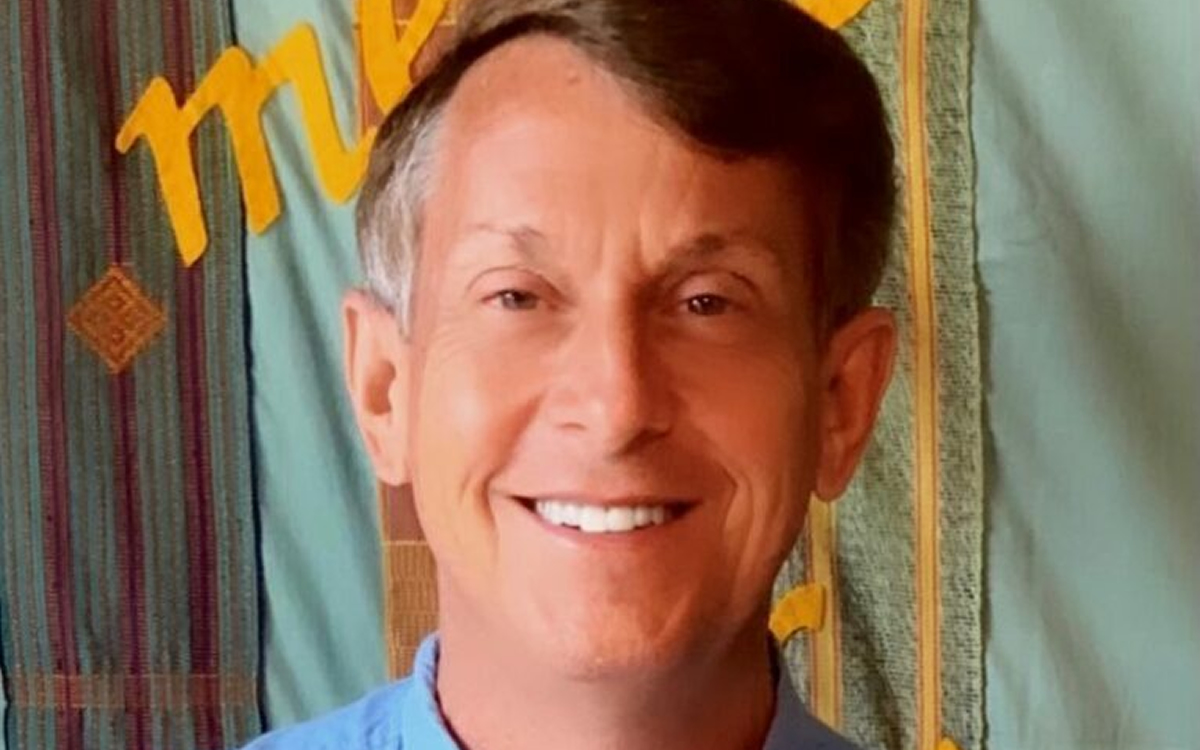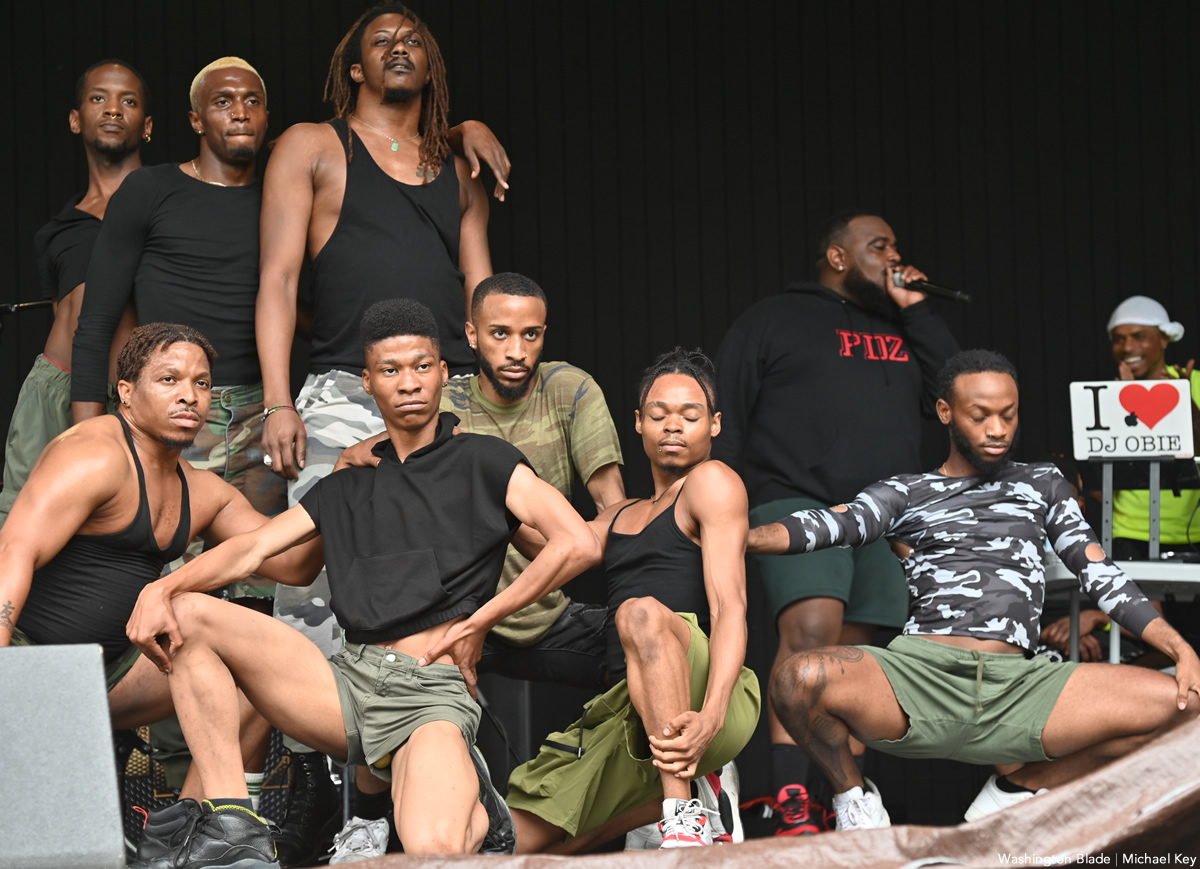District of Columbia
Washington AIDS Partnership to close at end of 2023
After 35 years, officials say ‘celebratory close’ comes after mission accomplished

The D.C.-based Washington AIDS Partnership, which describes itself as a philanthropic and advocacy organization that has provided more than $35 million in funding since its founding in 1988 to local organizations providing AIDS-related programs and services, has announced it will end its operations at the end of this year.
“After much thoughtful consideration, the Washington AIDS Partnership (WAP) is planning an intentional and celebratory close at the end of 2023 after 35 years of service to the D.C. community,” a statement released by the group says.
Channing Wickham, the organization’s longtime executive director, said he and the WAP’s board and staff strongly believe it has accomplished its mission of playing a key role in helping D.C. and surrounding communities become a national leader and role model in the support and care for people with HIV/AIDS and in the lowering the new HIV infections.
“One of the most important things to say and to be very clear about is that HIV is not over,” Wickham told the Washington Blade. “And we’re by no means saying that it is,” he said. “It’s just that our part in this is coming to a close.”
Wickham noted that through its funding, advocacy, and support work, Washington AIDS Partnership helped put in place local programs, including major improvements in the late 1990s and early 2000s of the D.C. Department of Health’s HIV/AIDS office, which evolved into the current HIV/AIDS, Hepatitis, STD, and Tuberculosis Administration (HAHSTA).
He points out that WAP, through its funding and support programs, also helped nurture and grow local organizations that currently provide the services that will carry on WAP’s mission. Among them, he notes, are organizations that provide HIV/AIDS services for the LGBTQ community, including Whitman-Walker Health, Us Helping Us, and HIPS.
One of WAP’s projects involved training young people through the federally funded AmeriCorps program, Wickham said. At one-point WAP had 12 AmeriCorps members who “worked on the front lines” of HIV/AIDS programs, including as volunteer staff members to local AIDS organizations, according to Wickham.
“Since about 2005, we have been the largest HIV private funder in the region,” he said. “But we were much more. We also were a public policy organization. We were a youth development organization,” he said, through the AmeriCorps program.
“WAP has provided over $35 million in funding to local organizations that focus programming and resources on the communities most affected by the epidemic,” the WAP statement says. “These grants have supported projects that significantly changed the landscape of HIV treatment and prevention in the District,” the statement says.
Megan Davies, Whitman-Walker Health’s Chief Program Officer, said Whitman-Walker has been the recipient of many WAP grants over the past 30 years in support of Whitman-Walker’s AIDS programs, including AIDS prevention efforts.
“Additionally, we have been a Washington AIDS Partnership AmeriCorps site for over 15 years, and it has been an honor working with such incredible individuals,” Davies said. “These young people brought so much energy and innovation to Whitman-Walker Health,” she said. And while there is still much to be done, Davies added, Channing Wickham and WAP “have helped D.C.’s rates of HIV incidence improve dramatically.”
In its early years and through the early 2000s, WAP has been credited with creating a new and highly effective way to provide funding for local, community-based HIV/AIDS organizations. As Wickham describes it, WAP, among other things, became a philanthropic foundation that helped other far larger foundations and individual donors, including private-sector companies, decide how to support efforts to effectively address the HIV epidemic.
Several of the nation’s most prominent philanthropic foundations, including the Morris & Gwendolyn Cafritz Foundation and the Gannett Foundation, donated millions of dollars directly to Washington AIDS Partnership and entrusted WAP to decide on the big donors’ behalf which local community groups should receive those funds through WAP grants.
“What we had was people at the table making these grant decisions,” Wickham said. “We had foundation representatives who entrusted us with their money. But we also had community leaders,” said Wickham. “We also had people living with HIV. So, we had the experts.”
Added Wickham, “We created a mechanism where together community and philanthropy and people with HIV were all together in a room and could talk through proposals and make the right decisions on where that money should go. We created a place where there was expertise that did not exist in individual foundations.”
Through that process over the years, according to Wickham, many of the individual foundations developed their own expertise on how to select and support local organizations doing HIV/AIDS work. And that, among other things, is part of the reason why WAP feels it has accomplished its work and can close its operations.
“It’s not insignificant to have the Partnership go,” Wickham told the Blade. “But, again, sometimes you have to know when it’s time to say we have succeeded, that we have accomplished our mission.”
Wickham is also quick to dispel rumors that have surfaced that one of the reasons WAP is closing is that he was retiring as executive director. He said he has no plans to retire after WAP closes at the end of the year, noting that he has plans to continue to be active in local and national causes.
“So, I’m not the story here,” he said. “The story is philanthropy came together in 1988 and over 35 years changed the course of the epidemic in our region. And at the right time, we decided that this philanthropic effort should sunset. I think that’s really the message,” Wickham points out.
“And I think that nonprofits should not go on forever, that once you accomplish your mission, then it’s time to say goodbye,” he said.
District of Columbia
New D.C. LGBTQ+ bar Crush set to open April 19
An ‘all-inclusive entertainment haven,’ with dance floor, roof deck

D.C.’s newest LGBTQ+ bar called Crush is scheduled to open for business at 4 p.m. on Friday, April 19, in a spacious, two-story building with a dance floor and roof deck at 2007 14th St., N.W. in one of the city’s bustling nightlife areas.
A statement released by co-owners Stephen Rutgers and Mark Rutstein earlier this year says the new bar will provide an atmosphere that blends “nostalgia with contemporary nightlife” in a building that was home to a popular music store and radio supply shop.
Rutgers said the opening comes one day after Crush received final approval of its liquor license that was transferred from the Owl Room, a bar that operated in the same building before closing Dec. 31 of last year. The official opening also comes three days after Crush hosted a pre-opening reception for family, friends, and community members on Tuesday, April 16.
Among those attending, Rutgers said, were officials with several prominent local LGBTQ organizations, including officials with the DC Center for the LGBTQ Community, which is located across the street from Crush in the city’s Reeves Center municipal building. Also attending were Japer Bowles, director of the Mayor’s Office of LGBTQ Affairs, and Salah Czapary, director of the Mayor’s Office of Nightlife and Culture.
Rutgers said Crush plans to hold a grand opening event in a few weeks after he, Rutstein and the bar’s employees become settled into their newly opened operations.
“Step into a venue where inclusivity isn’t just a promise but a vibrant reality,” a statement posted on the Crush website says. “Imagine an all-inclusive entertainment haven where diversity isn’t just celebrated, it’s embraced as the very heartbeat of our venue,” the statement says. “Welcome to a place where love knows no bounds, and the only color or preference that matters is the vibrant tapestry of humanity itself. Welcome to Crush.”
The website says Crush will be open Tuesdays and Wednesdays from 4 p.m. to 12 a.m., Thursdays from 4 p.m. to 2 a.m., Fridays from 4 p.m. to 3 a.m., Saturdays from 2 p.m. to 3 a.m., and Sundays from 2 p.m. to 12 a.m. It will be closed on Mondays.
Crush is located less than two blocks from the U Street Metro station.
District of Columbia
Reenactment of first gay rights picket at White House draws interest of tourists
LGBTQ activists carry signs from historic 1965 protest

About 30 LGBTQ activists formed a circular picket line in front of the White House Wednesday afternoon, April 17, carrying signs calling for an end to discrimination against “homosexuals” in a reenactment of the first gay rights protest at the White House that took place 59 years earlier on April 17, 1965.
Crowds of tourists looked on with interest as the activists walked back and forth in silence in front of the White House fence on Pennsylvania Avenue. Like the 1965 event, several of the men were dressed in suits and ties and the women in dresses in keeping with a 1960s era dress code policy for protests of the Mattachine Society of Washington, D.C., the city’s first gay rights group that organized the 1965 event.
Wednesday’s reenactment was organized by D.C.’s Rainbow History Project, which made it clear that the event was not intended as a protest against President Joe Biden and his administration, which the group praised as a strong supporter of LGBTQ rights.
“I think this was an amazing event,” said Vincent Slatt, the Rainbow History Project official who led efforts to put on the event. “We had twice as many that we had hoped for that came today,” he said.
“It was so great to see a reenactment and so great to see how far we’ve come,” Slatt said. “And also, the acknowledgement of what else we still need to do.”
Slatt said participants in the event who were not carrying picket signs handed out literature explaining the purpose of the event.
A flier handed out by participants noted that among the demands of the protesters at the 1965 event were to end the ban on homosexuals from working in the federal government, an end to the ban on gays serving in the military, an end to the denial of security clearances for gays, and an end of the government’s refusal to meet with the LGBTQ community.
“The other thing that I think is really, really moving is some of the gay staff inside the White House found out this was happening and came out to greet us,” Slatt said. He noted that this highlighted how much has changed since 1965, when then President Lyndon Johnson’s White House refused to respond to a letter sent to Johnson from the Mattachine Society explaining its grievances.
“So now to have gay people in the White House coming out to give us their respects and to say hello was especially meaningful to us,” Slatt said. “That was not expected today.”
Among those walking the picket line was longtime D.C. LGBTQ rights advocate Paul Kuntzler, who is the only known surviving person who was among the White House picketers at the April 1965 event. Kuntzler said he proudly carried a newly printed version of the sign at Wednesday’s reenactment event that he carried during the 1965 protest. It stated, “Fifteen Million Homosexuals Protest Federal Treatment.”
Also participating in the event was Japer Bowles, director of D.C. Mayor Muriel Bowser’s Office of LGBTQ Affairs. Bowles presented Slatt with a proclamation issued by Bowser declaring April 17, 2024, Mattachine Society Day in Washington, D.C.
“Whereas, on April 17, 1965, the Mattachine Society of Washington courageously held the nation’s inaugural picket for gay rights, a seminal moment in the ongoing struggle for LGBTQIA+ equality in the United States, marking the genesis of public demonstrations advocating for those rights and paving the way for Pride Marches and Pride celebrations worldwide,” the proclamation states.
About 30 minutes after the reenactment event began, uniformed Secret Service agents informed Slatt that due to a security issue the picketers would have to move off the sidewalk in front of the White House and resume the picketing across the street on the sidewalk in front of Lafayette Park. When asked by the Washington Blade what the security issue was about, one of the Secret Service officers said he did not have any further details other than that his superiors informed him that the White House sidewalk would have to be temporarily cleared of all people.
Participants in the event quickly resumed their picket line on the sidewalk in front of Lafayette Park for another 30 minutes or so in keeping with the 1965 picketing event, which lasted for one hour, from 4:20 p.m. to 5:20 p.m., according to Rainbow History Project’s research into the 1965 event.
Although the LGBTQ picketers continued their procession in silence, a separate protest in Lafayette Park a short distance from the LGBTQ picketers included speakers shouting through amplified speakers. The protest was against the government of Saudi Arabia and organized by a Muslim group called Al Baqee Organization.
A statement released by the Rainbow History Project says the reenactment event, among other things, was a tribute to D.C.-area lesbian rights advocate Lilli Vincenz, who participated in the 1965 White House picketing, and D.C. gay rights pioneer Frank Kameny, who founded the Mattachine Society of Washington in the early 1960s and was the lead organizer of the 1965 White House protest. Kameny died in 2011 and Vincenz died in 2023.
The picket signs carried by participants in the reenactment event, which were reproduced from the 1965 event, had these messages:
• “DISCRIMINATION Against Homosexuals is as immoral as Discrimination Against Negroes and Jews;”
• “Government Should Combat Prejudice NOT PROMOTE IT”
• “White House Refuses Replies to Our Letters, AFRAID OF US?
• “HOMOSEXUALS Died for their Country, Too”
• “First Class Citizenship for HOMOSEXUALS”
• “Sexual Preference is Irrelevant to Employment”
• “Fifteen Million U.S. Homosexuals Protest Federal Treatment”
District of Columbia
Organizers announce details for D.C. Black Pride 2024
Most events to take place Memorial Day weekend at Westin Downtown

The Center for Black Equity, the organizer of D.C. Black Pride, the nation’s first and one of the largest annual African-American LGBTQ Pride celebrations, announced this year’s event will take place Memorial Day Weekend from May 24-27.
The announcement, released April 16, says that most 2024 D.C. Black Pride events will take place at the Westin Washington, D.C. Downtown Hotel at 999 9th St, N.W.
“With the theme Black Pride Forever, the event promises a weekend filled with vibrant celebrations, empowering workshops, and a deep exploration of Black LGBTQIA+ history and culture,” the announcement says.
It says events will include as in past years a “Rainbow Row” vendor expo at the hotel featuring “organizations and vendors created for and by the LGBTQIA+ community” offering products and services “that celebrate Black excellence.”
According to the announcement, other events include a Health and Wellness Festival that will offer workshops, demonstrations, and activities focused on “holistic well-being;” a Mary Bowman Poetry Slam “showcasing the power and beauty of spoken word by Black LGBTQIA+ artists;” the Black Pride Through the Decades Party, that will celebrate the “rich history of the Black LGBTQIA+ movement;” and an Empowerment Through Knowledge series of workshops that “delve into various topics relevant to the Black LGBTQIA+ community.”
Also, as in past years, this year’s D.C. Black Pride will feature its “Opening Night Extravaganza” reception and party that will include entertainment and live performances.
The announcement notes that D.C.’s annual Black Pride celebration, started in 1991 as a one-day outdoor event at Howard University’s Banneker Field, has inspired annual Black LGBTQ Pride events across the United States and in Canada, United Kingdom, Brazil, Africa, and the Caribbean. More than 300,000 people attend Black LGBTQ Pride events each year worldwide, the announcement says.
Full details, including the official schedule of events, can be accessed at dcblackpride.org.
-

 Africa5 days ago
Africa5 days agoCongolese lawmaker introduces anti-homosexuality bill
-

 District of Columbia1 day ago
District of Columbia1 day agoReenactment of first gay rights picket at White House draws interest of tourists
-

 World5 days ago
World5 days agoOut in the World: LGBTQ news from Europe and Asia
-

 Arizona2 days ago
Arizona2 days agoAriz. governor vetoes anti-transgender, Ten Commandments bill









